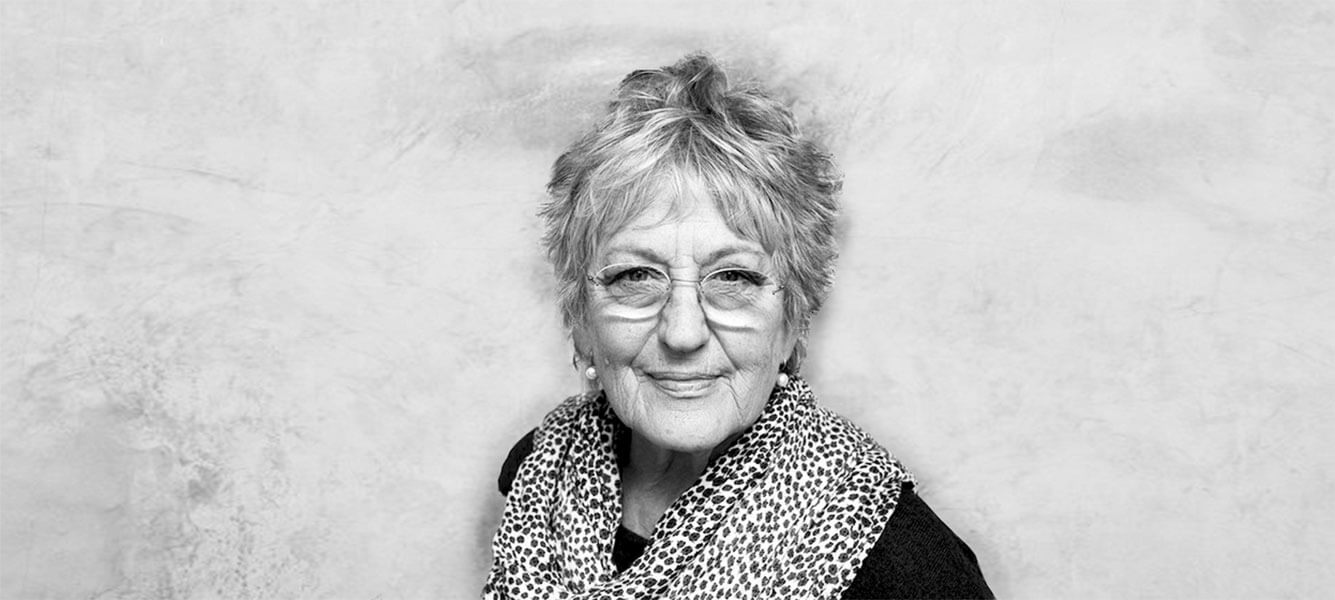Injecting artificial intelligence with human empathy

Injecting artificial intelligence with human empathy
Opinion + AnalysisRelationshipsScience + Technology
BY Allan Waddell 27 JUN 2019
The great promise of artificial intelligence is efficiency. The finely tuned mechanics of AI will free up societies to explore new, softer skills while industries thrive on automation.
However, if we’ve learned anything from the great promise of the Internet – which was supposed to bring equality by leveling the playing field – it’s clear new technologies can be rife with complications unwittingly introduced by the humans who created them.
The rise of artificial intelligence is exciting, but the drive toward efficiency must not happen without a corresponding push for strong ethics to guide the process. Otherwise, the advancements of AI will be undercut by human fallibility and biases. This is as true for AI’s application in the pursuit of social justice as it is in basic business practices like customer service.
Empathy
The ethical questions surrounding AI have long been the subject of science fiction, but today they are quickly becoming real-world concerns. Human intelligence has a direct relationship to human empathy. If this sensitivity doesn’t translate into artificial intelligence the consequences could be dire. We must examine how humans learn in order to build an ethical education process for AI.
AI is not merely programmed – it is trained like a human. If AI doesn’t learn the right lessons, ethical problems will inevitably arise. We’ve already seen examples, such as the tendency of facial recognition software to misidentify people of colour as criminals.
Biased AI
In the United States, a piece of software called Correctional Offender Management Profiling for Alternative Sanctions (Compas) was used to assess the risk of defendants reoffending and had an impact on their sentencing. Compas was found to be twice as likely to misclassify non-white defendants as higher risk offenders, while white defendants were misclassified as lower risk much more often than non-white defendants. This is a training issue. If AI is predominantly trained in Caucasian faces, it will disadvantage minorities.
This example might seem far removed from us here in Australia but consider the consequences if it were in place here. What if a similar technology was being used at airports for customs checks, or part of a pre-screening process used by recruiters and employment agencies?
“Human intelligence has a direct relationship to human empathy.”
If racism and other forms of discrimination are unintentionally programmed into AI, not only will it mirror many of the failings of analog society, but it could magnify them.
While heightened instances of injustice are obviously unacceptable outcomes for AI, there are additional possibilities that don’t serve our best interests and should be avoided. The foremost example of this is in customer service.
AI vs human customer service
Every business wants the most efficient and productive processes possible but sometimes better is actually worse. Eventually, an AI solution will do a better job at making appointments, answering questions, and handling phone calls. When that time comes, AI might not always be the right solution.
Particularly with more complex matters, humans want to talk to other humans. Not only do they want their problem resolved, but they want to feel like they’ve been heard. They want empathy. This is something AI cannot do.
AI is inevitable. In fact, you’re probably already using it without being aware of it. There is no doubt that the proper application of AI will make us more efficient as a society, but the temptation to rely blindly on AI is unadvisable.
We must be aware of our biases when creating new technologies and do everything in our power to ensure they aren’t baked into algorithms. As more functions are handed over to AI, we must also remember that sometimes there’s no substitute for human-to-human interaction.
After all, we’re only human.
Allan Waddell is founder and Co-CEO of Kablamo, an Australian cloud based tech software company.
Ethics in your inbox.
Get the latest inspiration, intelligence, events & more.
By signing up you agree to our privacy policy
You might be interested in…
Opinion + Analysis
Health + Wellbeing, Relationships
Why your new year’s resolution needs military ethics
Opinion + Analysis
Politics + Human Rights, Relationships
How to have a conversation about politics without losing friends
Opinion + Analysis
Relationships
Come join the Circle of Chairs
Opinion + Analysis
Relationships
Why listening to people we disagree with can expand our worldview
BY Allan Waddell
Allan Waddell is founder and Co-CEO of Kablamo, an Australian cloud based tech software company.
Parenting philosophy: Stop praising mediocrity

Parenting philosophy: Stop praising mediocrity
Opinion + AnalysisRelationships
BY Matthew Beard 27 JUN 2019
I spent this weekend hearing from all corners what a wonderful Dad I am. It was quite lovely, and I’d very much like for it to happen more often.
This weekend I was effectively a sole parent as my wife was rendered bedridden by illness. For two days, I was in charge of a seven-week-old baby and almost three-year-old toddler.
Miracle of miracles – they didn’t die. In fact, I managed to feed and bath them, plus made sure they slept. I even packed them both up in the car and took them to a birthday party and back again.
An uneven playing field?
This is the Herculean labour that earned me torrents of praise. In fact, it didn’t just earn me praise – people messaged my bed-ridden wife not only with well-wishes, but to tell her how lucky she was. Oh, to have a co-parent like him!
I can’t imagine how frustrating these messages are for her to receive. I spend four days a week at work, which means she has the kids solo for those four days. In that time, she takes them to doctors appointments, libraries, playgrounds, feeds them, does an enormous amount of housework and manages, somehow, to keep herself alive.
What I did this weekend amounts to about 50% of what she does week in, week out. Guess how many people have texted me to say how lucky I am?
Less effort but more praise?
The double-standards here are staggering. They’re also incredibly unfair. To see someone receive more praise for less effort is profoundly invalidating – something about which women have been increasingly outspoken. It also makes social progress difficult – the more we see men’s modest contributions as incredibly generous and praiseworthy, the harder it is for women to ask more (even though what they’re asking for is entirely reasonable – lest we forget the last census, which reports that one in four men do zero housework).
What’s been less widely addressed is just how bad this double-standard is for men. I, and I would imagine most dads, want to be a great parent and partner. But that’s not helped by receiving praise for every little thing I do – it gives a false impression of exactly where I am on the spectrum: am I doing a great job, a terrible one, or just a mediocre one? It’s hard to tell through all the well-intended, generous praise.
Praise can be a double-edged sword
Praise is a powerful tool for behavioural change and moral growth. It can be used to help encourage people to do the right thing, remind them when they’ve slipped up and point out whose behaviour is a good example to follow. But that only works if the people offering praise have a clear idea of what’s actually worth praising – the praise in itself means nothing if it’s not properly calibrated.
And this is why the kind of praise I received is a problem. Taking care of your children is not exceptional, parenting-wise. It’s just what you’re supposed to do. Ditto, doing the laundry, cooking for the family, organising tradesmen to come and fix the house, planning birthday parties and all the other domestic activities that women do thanklessly and men do heroically. Or, at least, some men – again, one in four do no chores.
The sheer mass of men not pulling their weight makes it so easy for mediocrity to look amazing. The comedian Hannah Gadsby talks about how there is a line in the sand between ‘good men’ and ‘bad men’, but how it tends to be men who determine where that line is drawn. Similarly, as a dad I can always find a dad who isn’t doing quite as much as me and use that to determine how much I’m contributing. And, good news, I’m likely to have my self-image reinforced by praise and gratitude at every turn.
What’s more, there’s a social message embedded in that praise. Just as the text message said, women are told they should be grateful to have a partner who is not one of those who does no housework. Maybe he doesn’t do much – but it’s not nothing, so lucky you. Obviously, these narratives are very bad for equality.
They’re also, as I said, very bad for men who want to be great partners, parents and people. The school of ethical thought that most focusses on the kinds of questions I’m asking here is known as ‘virtue ethics’. Virtue ethics focusses on the kinds of character traits that are most likely to make people good and the kinds of activities that are likely to develop and model those characteristics.
Thinking in this way, we might be inclined to say that being a good parent requires the development of a bunch of different character traits – like compassion – and then practising those character traits by, say, holding a child gently while they have an emotional meltdown.
However, one the key ways we learn the virtues is by emulating role models. That means who we single out as role models is really important and – as we’ve said – what counts as ‘exemplary’ parenting can, for dads, be a pretty low bar. Not only does this leave a lot of cleaning up for the co-parents of men who have been sold this story, it undermines their ability to become who they really want to be: great dads.
What do we do about this? Well, for one thing, we should stop giving blokes a cookie just because they showed up. Reserve our praise for when it’s really deserved – and then hand it out equally. Great parenting is great parenting – just because it’s more common to see women in that role doesn’t mean they’re unworthy of praise.
Second, I think men have got to be critical about the kinds of feedback they receive. Before letting it stoke our egos, we need to consider whether or not it’s warranted. In an age of allyship and leaning in, social brownie points are pretty easy to come by for men. But we need to hold ourselves to a higher standard. As the philosopher Kwame Anthony Appiah writes, “a person of honour cares first of all not about being respected but about being worthy of respect.”
Matt Beard is a tired, okay dad.
Ethics in your inbox.
Get the latest inspiration, intelligence, events & more.
By signing up you agree to our privacy policy
You might be interested in…
Explainer
Relationships
Ethics Explainer: Stoicism
Explainer
Relationships
Ethics Explainer: Existentialism
Opinion + Analysis
Health + Wellbeing, Relationships
Want to live more ethically? Try these life hacks
Big thinker
Politics + Human Rights, Relationships









